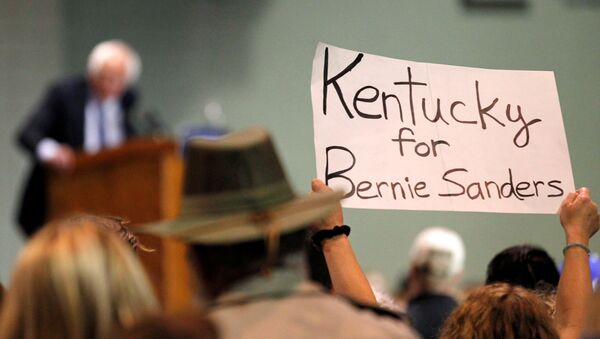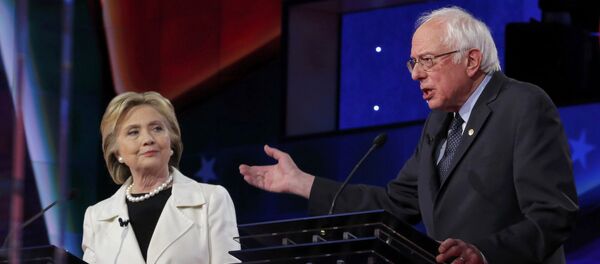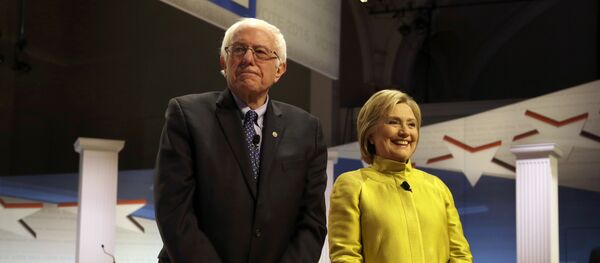"Sanders acted as a shepherd for Hillary Clinton," Institute of Public Affairs analyst Netfa Freeman said on Tuesday. "He herded people — he sheep-dogged them — into the Democratic Party. He gave them hope and now he has taken it away."
Sanders’ endorsement of Clinton earlier on Tuesday was no shocking U-turn, but simply confirmed what Sanders had made clear he was going to do from the launch of his campaign last year, Freeman explained.
"This was to be expected. Sanders was always going to endorse Hillary Clinton, he said so from the beginning. It is all going according to the Democratic Party’s plan for Sanders to bring in the more left wing elements of the electorate that were ready to leave the Democratic Party," he observed.
Sanders had broken faith with the idealists who had hoped he was launching a new movement to abandon the corruption and cynicism of mainstream US politics, Freeman insisted.
"Bernie Sanders is betraying the Progressive moment by endorsing Hillary Clinton," he said, adding that Clinton is an imperialist and a warmonger.
"She even militarizes communities at home and she has a long record of imperialist aggression abroad," Freeman stated.
"There was a real opportunity to break the duopoly of the two big establishment political parties of entrenched privilege in this election. The Democrats are fundamentally a party of capitalism and imperialism just as much as the Republicans," he said.
Sanders decision would lastingly divide his movement, Freeman noted.
"Those who supported Sanders are split now. Some of them will follow him into the Clinton camp. But others have made clear they will not vote for Clinton under any circumstances. They will be looking for other alternatives. Some of those people will not stay in the Democratic Party," he said.
University Pittsburgh Professor of International Affairs Michael Brenner said Sanders had negotiated the best deal he could get with Clinton, who is set to be nominated as the Democratic Party’s presidential candidate later this month.
The deal was "a trade-off [in return for] getting the party's commitment to support portions of his program in return for an endorsement," Brenner explained.
Sanders’ support could prove to be of considerable help to Clinton, Brenner suggested.
However, "The uncertain factor is how many Sanders' supporters will stay home. But given the antipathy felt by most mainstream Democratic and independent progressive voters for [Republican presumptive candidate Donald] Trump, "the calculation is relatively few," he said.
If Clinton was elected, she would rapidly abandon all her Progressive pledges and rhetoric, Brenner concluded.



